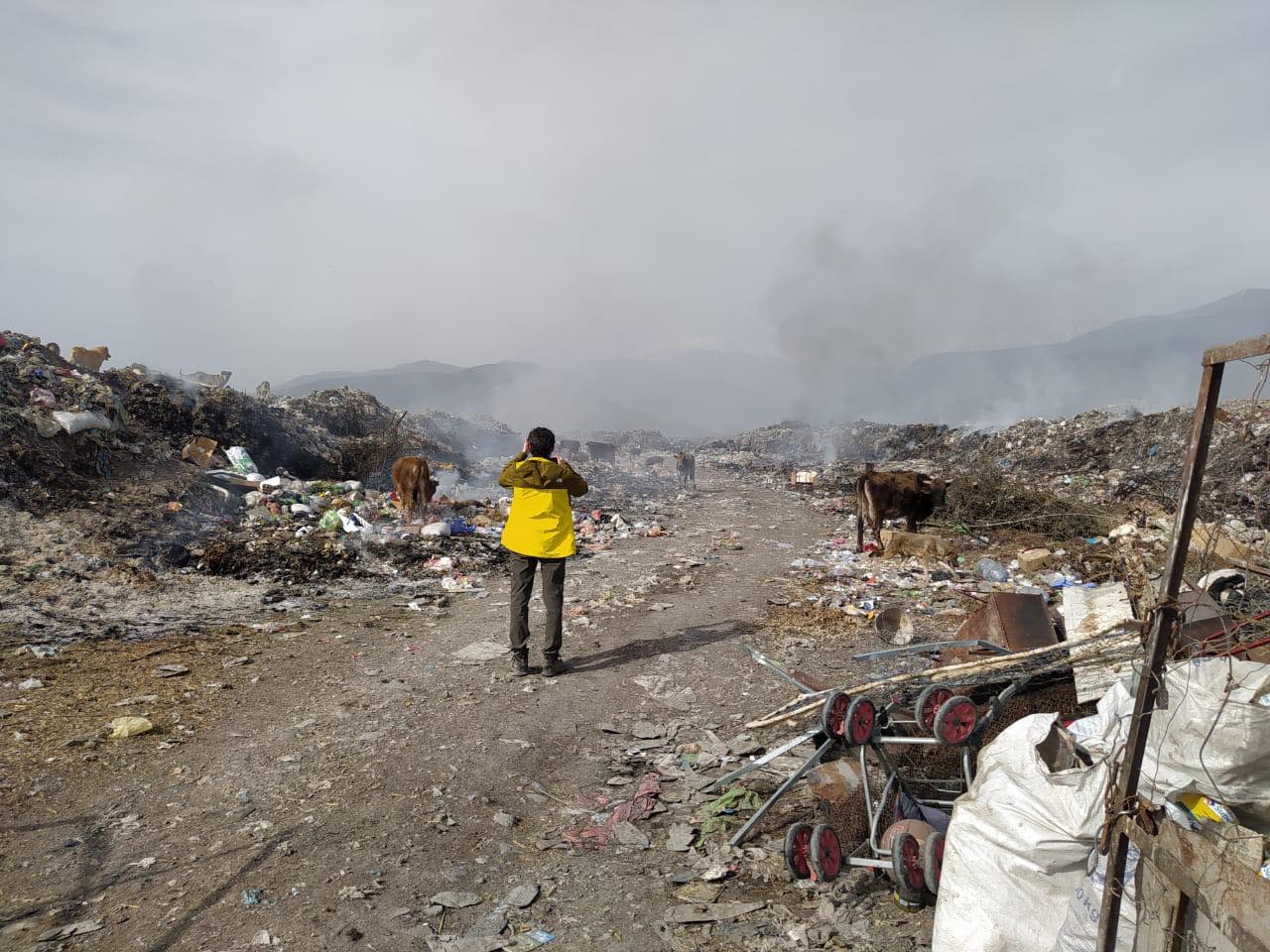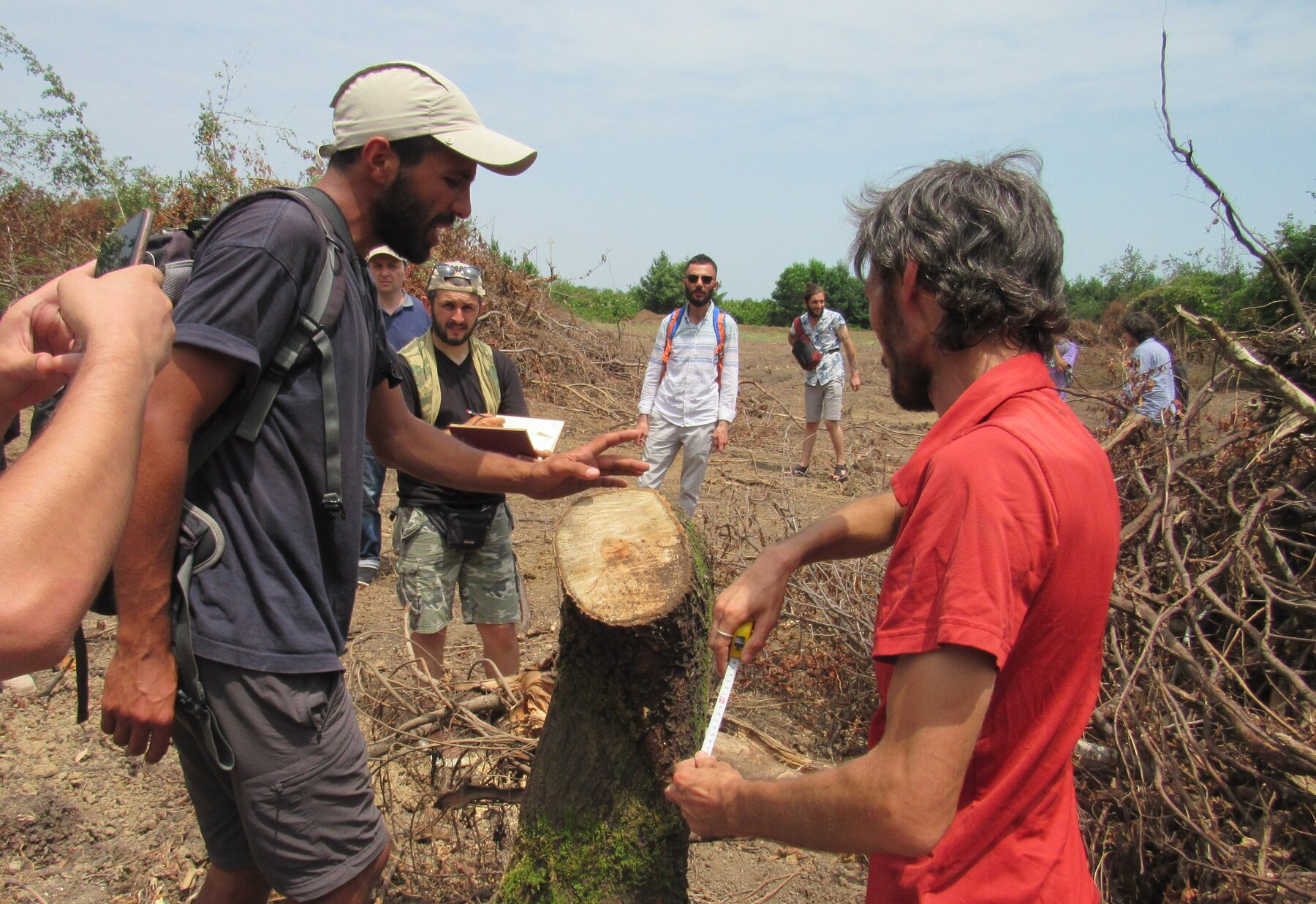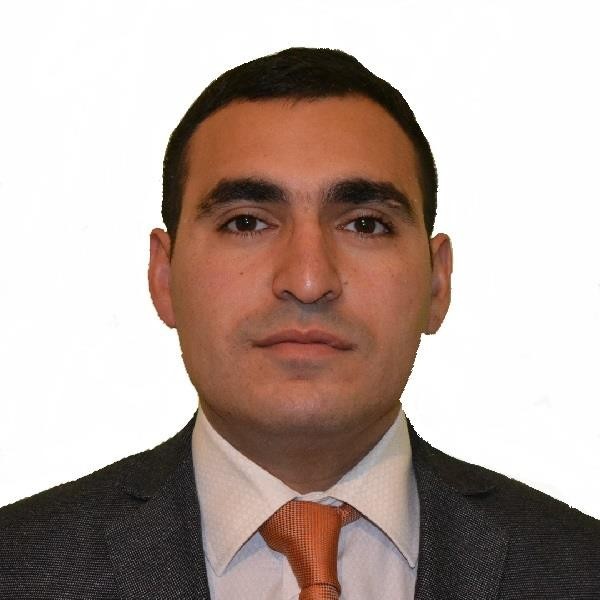Holding the line in the Hyrcanian forests
Azerbaijani economist Javid Gara founded the non-governmental organisation Ecofront in 2018 to fight the exploitation of native forests, including the Hyrcanian forests on the Caspian Sea, where "relict trees" support unique biodiversity. Three years later, electrical engineer Kenan Khalilzada joined the NGO.
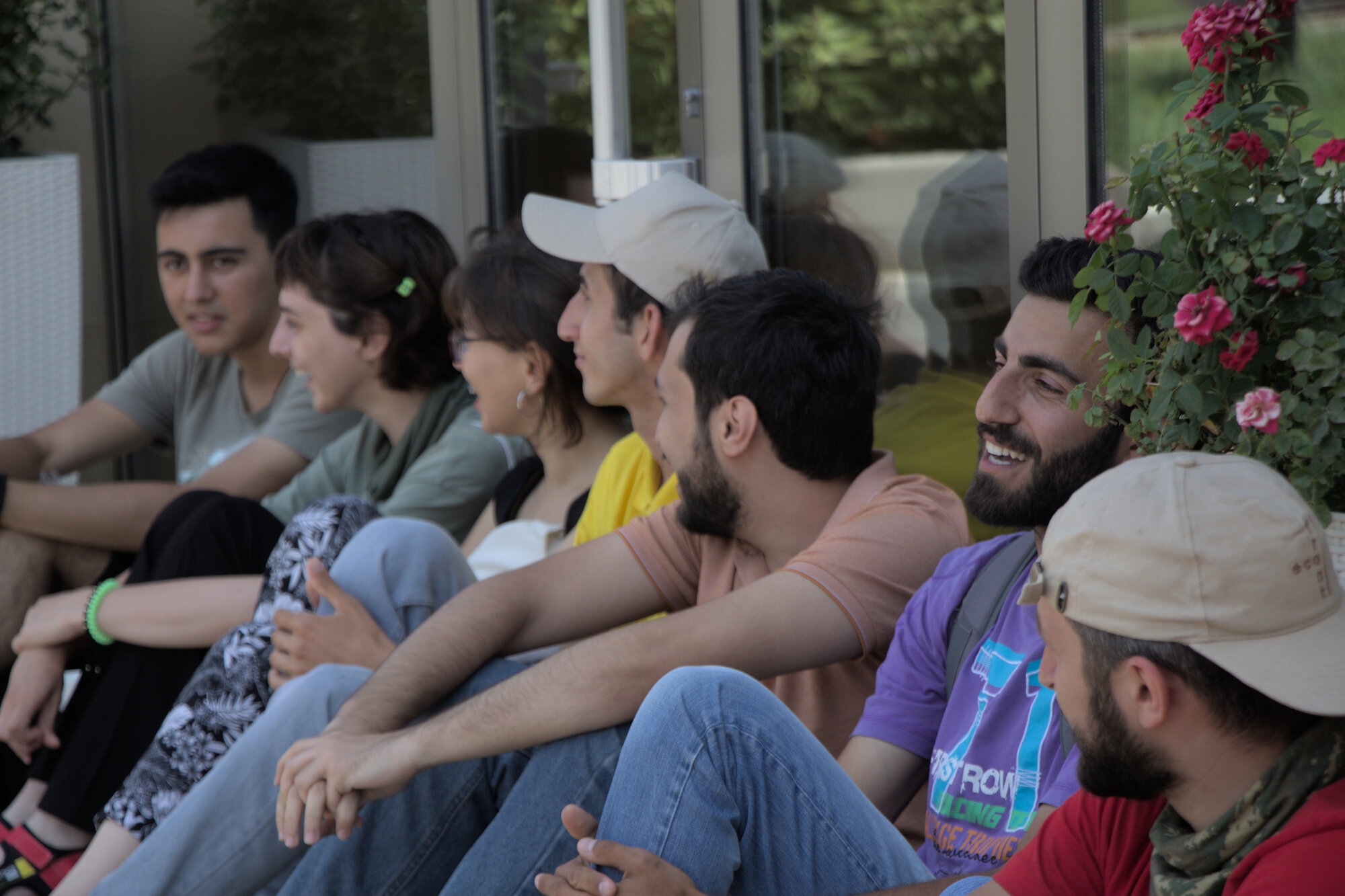
Despite arrests, fines and tight budgets, your five-member team are fighting the clear-cutting of forests in Azerbaijan. What is driving this deforestation?
Javid: The 2019 campaign was against companies which had leased forests, were massively cutting down trees and planting orchards. Trees also provided material for wooden boxes in which fruit or vegetables are transported, and for charcoal, which households and restaurateurs use for cooking. More and more boxes are needed for the increasing export to Russia, and trees are being felled again and again, including many young trunks, because they are easier to transport. The situation is particularly bad in remote areas with rich forests where there are very few economic alternatives.
When did you first encounter the problem?
Javid: The mass deforestation began in 2019, when Azerbaijan extended forest leases from ten to 49 years by law, releasing thousands of hectares of forest to companies for exploitation. Since then our protests have led to contracts being stopped and the responsible management being dismissed.
That’s a big success, isn’t it?
Javid: More like a Pyrrhic victory, because about 2,500 hectares of forest were cleared before we could intervene.
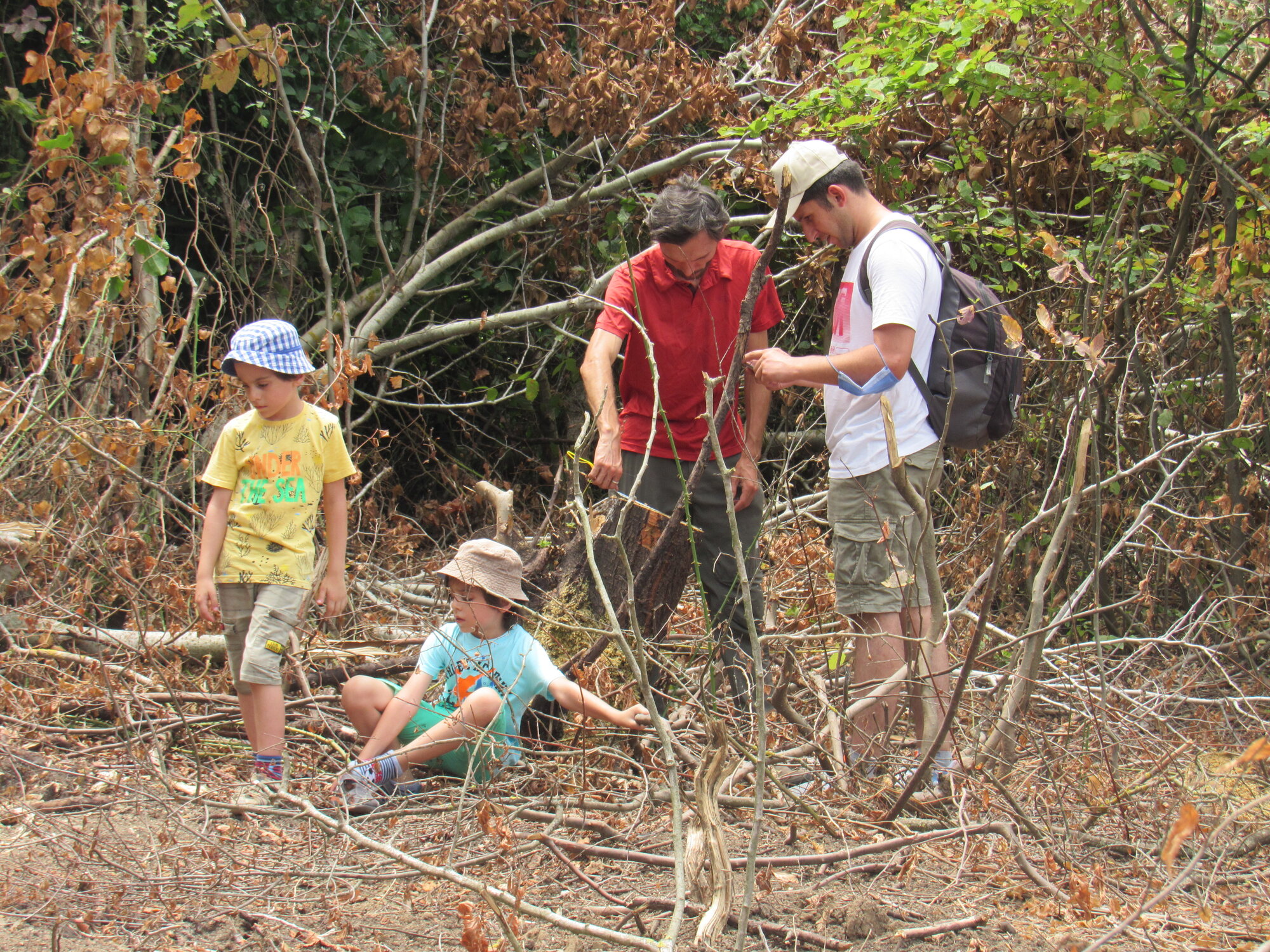
What kind of pressure do you come under for your actions?
The police have arrested me three times. Once, border guards fined each of us 140 euros for trespassing when Kenan and I photographed a clearing in northern Azerbaijan. But in return we were able to prevent 300 hectares of forest from being destroyed. Other local NGOs are too soft. For example, they limit themselves to not eating meat or throwing away plastic. But you can't be a real eco-activist if you don't draw a hard front line. Where there is a serious problem, you need tougher interventions.
I know what I am talking about, because I’ve experienced it. Between 2017 and 2018, I worked as a forest inspector and witnessed the corruption in the forest department. When I refused to take bribes, the people offering them assumed I was trying to extract more money out of them. Fortunately, I am independent because I earn enough from my travel agency, unlike other inspectors who have to support themselves and their families on the equivalent of 170 euros a month.
What needs to be done to end the exploitation of the forests?
Javid: Although illegal logging carries prison sentences of several years, convictions are rare due to lack of evidence and bribery. And the fixed price for a cubic metre of wood is ridiculously low: we need it tripled to help our forests. We are working to increase forested areas, but above all state gas suppliers must provide gas to those remote villages which currently have to cut and burn wood.
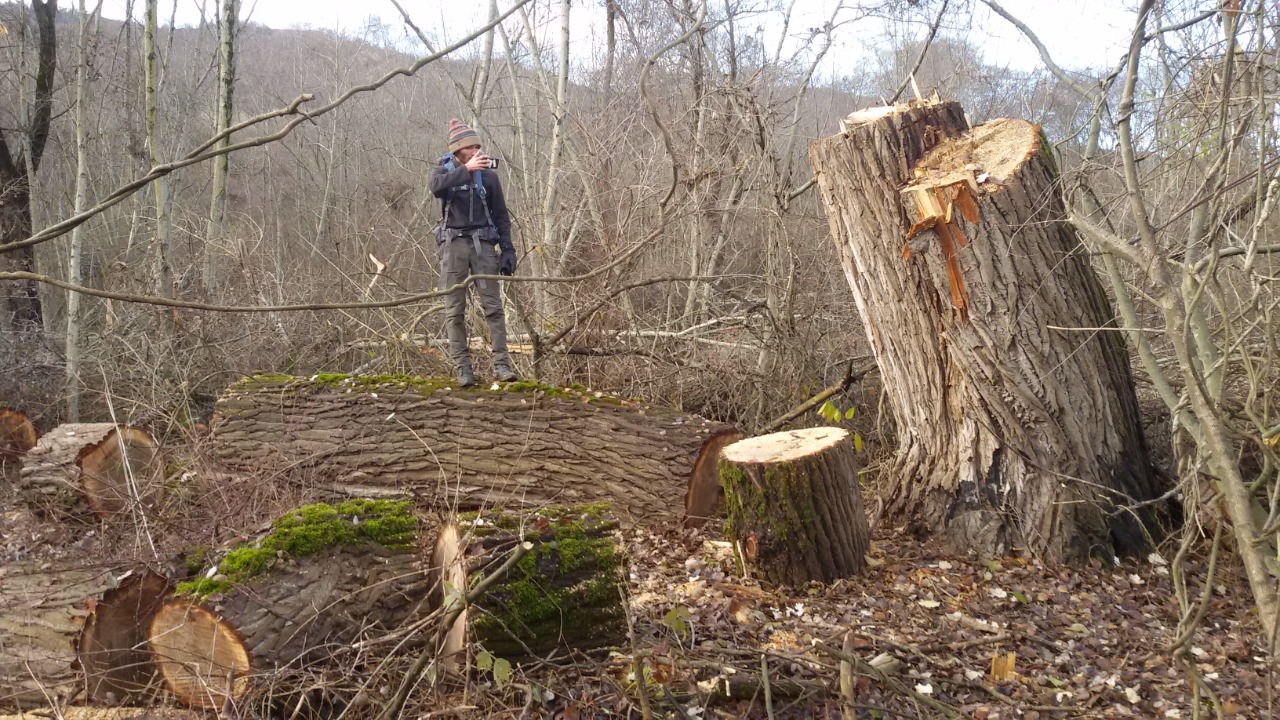
What other projects has Ecofront been involved in so far?
Kenan: In 2018, we preserved a habitat for gazelles in northwestern Azerbaijan which a company wanted to convert into economically productive farmland. Bribery and corruption could have won the day, especially since the place is far from the capital and it is believed that no one will take care of it. Our campaign succeeded in getting the Supreme Court to prohibit the company from ploughing up the gazelles' grazing area.
Another successful action prevented a group of Arab falconers from hunting rare bird species from continental Asia and Arctic Russia which winter here to take advantage of the country's abundant food supply and mild climate. Among them was probably the world's largest gathering of little bustards (Tetrax tetrax). We searched social media for footage of the hunt and found what we were looking for. When we published the pictures, the falconers were forced to leave Azerbaijan.
You are obviously fighting on many fronts. Where else is Ecofront active?
Kenan: In the town of Sumqayit, domestic waste was burned in a landfill for years, making it difficult for residents to breathe. We collected signatures and addressed a petition to the leaders of the municipality. The landfill still exists, but now the waste is no longer burnt, but separated and covered. We are also fighting to stop untreated sewage in our capital, Baku, from being discharged into the Caspian Sea and to collect batteries from our 60 collection points and hand them over to a company which recycles them in an environmentally friendly way.
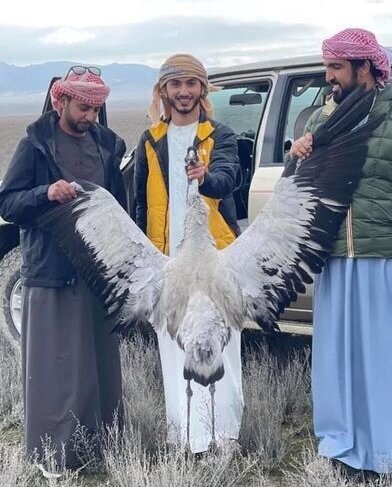
What challenges does your NGO face?
Kenan: We need more income to run regular activities and employ more staff and volunteers. Our only stable income is from donations on the Patreon platform, where people subscribe to support our various projects (https://www.patreon.com/ecofront), usually 100 or 200 euros at a time. We crowdfund and we sell second-hand clothes which our supporters donate. Because of our criticism of state institutions such as the Ministry of Ecology, we are not considered for ministry research projects. We were able to find international funding for a couple of our projects, but we can't survive through that model alone.
Do you feel you’re gaining ground through your actions?
Javid: Yes and no. The Ministry of the Environment is planting trees here and there, but only on a very small scale. Besides, there is no database on the location and number of trees planted, and no public control of them. At least we are noticing that less clearing is going on and more forest managers are taking care of the stands.
Kenan: Ecofront is moving in the right direction and a recent decision by the government confirms it: starting in five years’ time, private companies rather than the state will set energy prices produced from solar panels, wind turbines and other renewable sources. Even though it comes late, this is good news.
